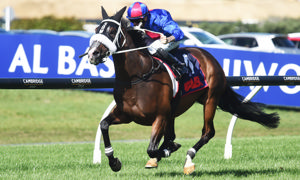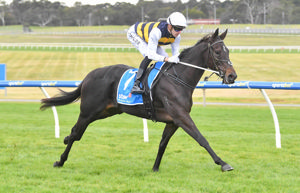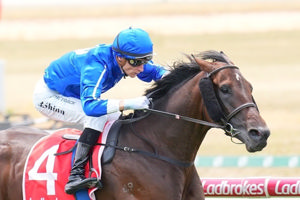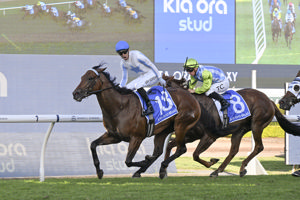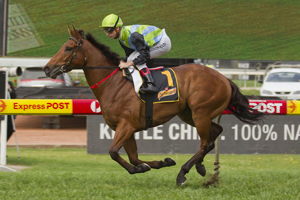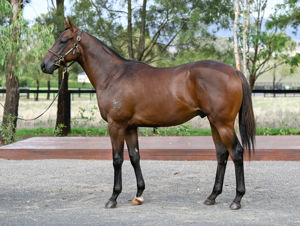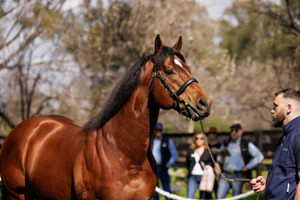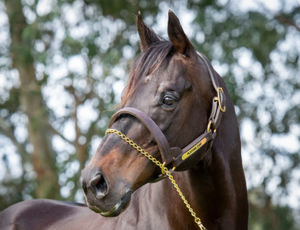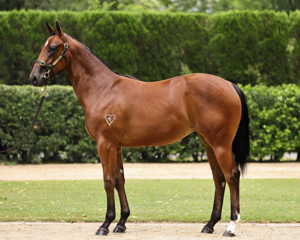Both the buying of new stock (especially if from interstate or overseas) or the retirement of stock brings up tax treatment errors often made by tax advisers, especially those with limited primary production or horse industry experience.
Such errors are well worth bringing to your attention as they can prove to be very costly if the ATO comes across them in any review.
Mistake 1 - the 'cost' of trading stock at year end is not just the 'purchase price'
The Tax Act allows a taxpayer to elect to value its year end horse trading stock at either its 'Cost', 'Special Closing Value' (i.e. the special mare and stallion write-off rules), 'Market Selling Value' or 'Replacement Value'.
We will focus on instances where the taxpayer finds it appropriate to value all or part of his or her closing stock at 'cost'.
The Tax Act uses the term 'cost', rather than 'cost price', to avoid any confusion as to whether 'cost price' means 'cost' or whether it restricts that meaning.
Buying commission and freight are part of closing trading stock 'cost'
Now…this is the crucial bit…the term 'cost' for the purposes the Tax Act is not just its 'purchase price', but it's considered to mean the cost of the stock to the taxpayer including charges in getting it into its existing condition and bringing it to the place where it is 'on hand ', thus including freight, commission, insurance and duty. Note - GST that is claimed (or claimable) is not a cost to be included in 'cost' for these purposes.
In the real world of buying horses, especially mares, breeders often incur significant agent commission and/or freighting costs (often more than $10,000 dollars) to get the horse to a position where it is "on hand'. Thus, the above stock principle makes it clear that such costs, though immediately tax deductible, are also to be included in the closing stock figure for that horse – in effect, this means that the tax deduction for these items is offset at year end as such costs are also included in the 'cost' of the horse for year-end trading stock purposes. Bringing trading stock into the tax P&L at year end is an income item, that either increases profits or decreases losses to the breeder.
Example 1 – Bringing commission and freight into mare trading stock 'cost' at year end
Darren the breeder has an existing tax breeding business and his Australian bloodstock agent, Clem, recommends he buys a new UK based broodmare, 'Miss Dazzler', for his business. After conversion, the mare cost him AUS$100,000. Clem the agent charged Darren commission of $7,500 and the freight to Australia cost $20,000.
In his tax P&L for the year of purchase, Darren will immediately claim as deductions the following:
Mare cost $100,000
Clem commission $7,500
Freight from UK $20,000
However, as Darren has a breeding business, under the Tax Act he must take up the tax value of his closing stock as an income item in his P&L, which includes his new UK mare 'Miss Dazzler'. After consultation with his tax adviser, Darren elects to value this mare at 'cost', thus her 'cost' value is not just the purchase price, but also the cost of the commission and freight. All up, her value for year-end trading stock purposes is $127,500, i.e. her $100,000 cost plus commission and freight of $27,500 in total.
Thus, in Year 1, Darren claims a tax deduction of $127,500 for the mare purchase and related costs, but the trading stock income item is also $127,500. At the end of Year 1, the deduction and income items are equal and the net effect to his P&L is NIL. It will only be in the year that this mare is sold is when Darren will get, in addition to the purchase price, the full deduction for the commission and freight, until then these costs are absorbed into the value of his trading stock.
Mistake 2 – 'retired' horses not 'disposed' of
Regrettably, it is not well known that the Tax Act has special rules to ensure that stock 'retired' or 'written-off' is done so properly to avoid severe (read 'very unwelcome') tax implications.
Where an item ceases to be held as trading stock
The Tax Act provides that where an item which is held by a taxpayer as trading stock stops being so held, but continues to be owned by the taxpayer, the taxpayer is treated as having sold it at cost at arm's length and in the ordinary course of business, and as having reacquired it for the same amount .
This has the effect that the original 'cost' amount is included in the taxpayer's income at the time of the change in the status of the item, e.g. retired and no longer used in the horse business.
These rules are designed to attribute a cost base for the item, for capital gains tax purposes, if such item happens to be sold in the future. It must be noted that once the item ceases to be held as trading stock, it will generally become a normal capital ('hobby') asset for the taxpayer.
This section of the Tax Act is aimed at overcoming the uncertainty which surrounded the taxation treatment of items of trading stock, such as horses in a horse business, which have ceased being held as trading stock even though they are still owned by the taxpayer.
The problems
The major problems for horse players with this rule is two-fold, being:
Older mares (12 or over) often have a nominal tax value of $1 if the special mare 'write-off' rules have been applied to them. If market value has been used to value them, the tax value at year end may also be nominal, say less than $1,000 dollars. However, the original 'cost' of these mares are often considerably more.
Under this rule, if the mare is still owned by the breeder after she is retired, the mare is disposed of by the breeder as it 'cost', and this cost could be, say, $200,000. This original 'cost' amount, as noted above, is income to the breeder, and in effect a 'sale" is recorded for this original high 'cost' amount. If the mare has been written-off to a $1 tax value under the write-off rules, the profit to the breeder for retiring this mare is $199,999 ($200,000 original cost less $1 tax value). Ouch!
The breeder may have an integrated breeding and racing business and highly commercial yearling colts acquired as, say, stallion prospects, could have a tax value still equal to its original cost, this being on the basis that the colt is valued at 'cost' for year-end closing stock purposes. Stallion prospects don't come cheaply, and this figure is often more than $100,000 dollars.
Again, as illustrated above, unless this horse (often a gelding by this stage!) is disposed of at arm's length to another party at the time of retirement, its original cost must be returned as income, so in effect the taxpayer gets no tax deduction for writing off this horse given its current closing stock tax value is also at 'cost'. This can be very frustrating if the horse originally 'cost' $500,000 plus and is virtually worthless at the time of retirement!
It is also worth noting that if ownership has not changed and the business owner reacquires the racehorse as a hobby asset for its original cost, any future disposal of that horse as a 'capital asset' would not even attract a capital loss under the 'Personal Use Asset' CGT rules. How much worse could it get?
The solution
If the mares or racehorses above, at retirement, are no longer owned by the taxpayer after they cease being in the business, the above rules don't apply.
Accordingly, just prior to retirement, the horse should be 'sold', at arm's length , to a party external to the taxpayer. Please don't leave it in the back paddock and think there can never be tax implications for not tax planning for its 'retirement' properly!
If the horse (either mare or racehorse) is worth, say, $200, it should be sold for that amount (plus GST of course!). As a minimum, to ensure this sale is commercial and at arm's length (crucial ATO requirements), the sale should be:
supported by an agreement in writing between the parties;
the disposal amount is to be at an appropriate market value;
c) recorded as a sale in the horse tax accounts of its former owner; and
d) any further expenses and GST claims for this horse are NOT to go through
the existing horse business. It must be obvious that the horse is no longer
owned by the original taxpayer, e.g. a sole trader, company or trust.
Please be mindful that an overarching requirement re any disposal of the horse is that it should not be driven by tax considerations.
Gifting the horse?
Another possible solution to the above is gifting the horse to another party upon its retirement. Though the ownership of the horse has changed hands, the ATO are still uncertain as to whether they will apply the rules above, i.e. treat the horse is being sold at its 'cost' to the new owner. At this stage, it is far more prudent to play it safe and to sell the horse at arm's length to an external party as noted above.
Please don't hesitate to contact the writer if you wish for me to clarify or expand on any of the matters raised in this article.
Prepared by:
PAUL CARRAZZO CA
CARRAZZO CONSULTING, CHARTERED ACCOUNTANTS
801 Glenferrie Road, Hawthorn, VIC, 3122
TEL: (03) 9982 1000
FAX: (03) 9329 8355
MOB: 0417 549 347
E-mail: paul.carrazzo@carrazzo.com.au
Web: www.carrazzo.com.au

